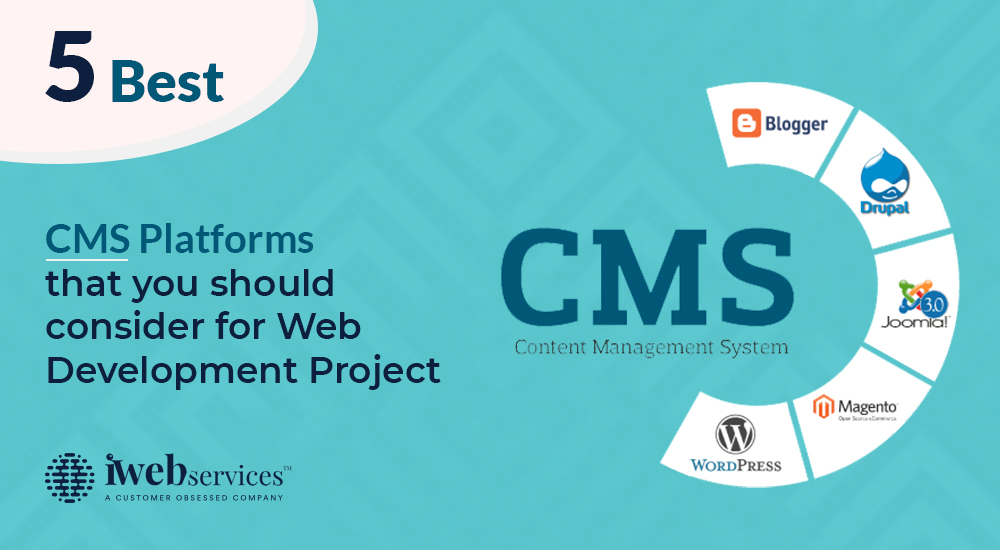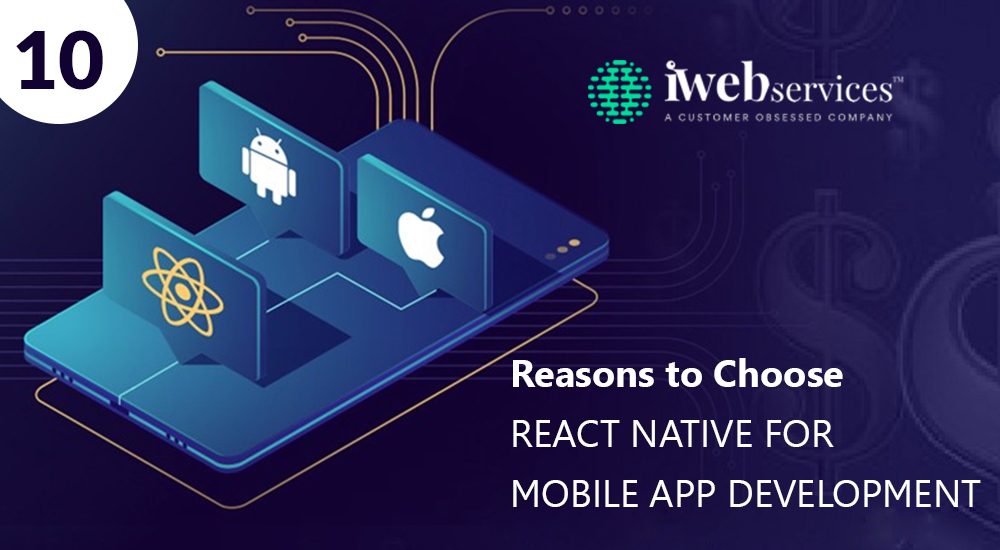5 Best CMS Platforms that you should consider for web development project
A business website can boost the sales and revenues of a company. Every entrepreneur wants to get a stunning e-commerce website to power up their business. CMS platforms like WordPress, Magento, or Joomla have taken the web development sector to a new level. It makes the website development process easy and very simple. Moreover, one who is not from technical background can develop a website from scratch and maintain it perfectly using CMS.
Most web development companies provide several CMS development services. Here, we have listed the best 5 CMS platforms for their utilities, functionalities, specialties, and popularity. Find out which CMS platform will be the most appropriate for your upcoming website development project.
WordPress
WordPress is a free PHP-based website development and content management platform.
People prefer to use this online CMS platform for its open-source and user-friendly nature. It holds more than 60% share of the global CMS market. It offers many advanced widgets, plugins, and easy-use components with strong back-end support and security.
WordPress allows users to develop various websites such as e-commerce websites, online corporate portals, informational sites, or personal blogs. One can build their websites or manage their blogs easily without having a solid understanding of any coding languages. WordPress can be a perfect choice for those who want to start blogging or display their products through an online platform.
Key Features of WordPress
- Screen Options for showing or hiding things.
- Dashboard Widgets for adding, moving, or deleting something.
- Widgets accessibility mode.
- Image edit option.
- Link or URL generation option in the visual editor.
- Theme preview option that enables one to see inbuilt themes without activating them.
- Post sharing option to split it into multiple pages.
Pros & Cons of WordPress
Pros
- Easy installation and settings
- Automatic UI
- Strong support and great community
Cons
- Limited extensions and theme
- Restricted performance capability
- Frequently ask for a security update
Magento
Magneto is a perfect CMS platform for developing e-commerce websites. Magneto holds the first position in the e-commerce website development market, but it has only a 6% market share in the entire CMS market scenario. It offers an exclusive shopping cart system, flexible catalog management features, robust Search Engine Optimization, and a marketing system. People can download, install and use Magneto free of cost for its open-source nature. The Magneto team has already introduced a paid version called 'Magento Commerce & Magento Go.' The paid version of Magneto combines all business solutions, including hosting and other content management services.
Key Features of Magneto
- Tools for promotions and marketing.
- Catalog and product browsing tools.
- Site management features.
- Checkout methods.
- Several payment gateways.
- Shipping procedures.
- Order management features.
Pros & Cons of Magneto
Pros
- SEO friendly
- Optimal Security
- Several customization options
Cons
- Expensive plans for the paid version
- Complicated customization
- Needs hosting cost
Drupal
Like other popular CMS platforms, Drupal is a widely used open-source web development and content management tool. It holds the 3rd position on the list of top 5 CMS platforms. Like WordPress, it is also free to download and use a well-written PHP language.
If you want to create a great website with some advanced features, go for Drupal. You can customize your website with its elegant themes and extensions. It supports peer-to-peer networking, collaborative authoring, newsletters, downloads, and uploads of files, including text, images, audio, videos, and applications, image galleries, podcasts, and more. Big web development companies have been using Drupal for their website development projects worldwide.
Key Features of Drupal
- Advanced theme engine
- Supports HTML5 implementation
- Quick edit option
- Predefined configuration
- Multilingual
Pros & Cons of Drupal
Pros
- Wide range of extension modules
- Supports several domain management systems
Cons
- Restricted back-end compatibility
- Requires extra installations
- Frequently ask for a security update
Joomla
If you are new to using CMS platforms, choose Joomla for your web development projects. It offers a simple installation and setup process that makes the website development and management process too easy. It includes various extensions and ready-made website templates to customize your site.
Key Features of Joomla
- Content and banner Management.
- Web Link Management.
- Accessible front-end editing features.
- Multilingual user management.
Pros & Cons of Joomla
Pros
- Open source in nature.
- Easy installation and configuration.
- Easy to use.
- Single-click web hosting.
- User-friendly features, widgets, and plugins.
Cons
- Fewer templates, themes, and extensions than WordPress
- Extensions need manual implementation
Umbraco
This ASP.Net framework-based CMS platform does not impose any restrictions in terms of content creation and its customization. Users can create content on their websites and can customize it according to their needs. With Umbraco, one can efficiently operate multiple sites simultaneously. Plus, it offers tight security to prevent malware attacks, and even it does not ask for updating the software frequently like Drupal or WordPress.
Key Features of Umbraco
- Data editing and storing options.
- Easy website maintenance and management.
- Upload and download features.
- Smart Search tools.
- Supports Cloud.
Pros & Cons of Umbraco
Pros
- Large developer community.
- More stability and security than other CMS.
- SEO-friendly.
Cons
- More difficult to use than other CMS.
- Publishing errors may happen sometimes.
- Shortage of advanced features and plugins.
- No in-built support for LESS and SASS.
Conclusion
There are several CMS technologies in the web development market and offer dozens of features, tools, and technologies. But, every CMS owns some specialties, so you need to choose the one that suits your business. You can use any of these CMS platforms to create your dream website. When you hire CMS developers, let them know about your preference and your objective behind getting a website.




Comments
Post a Comment